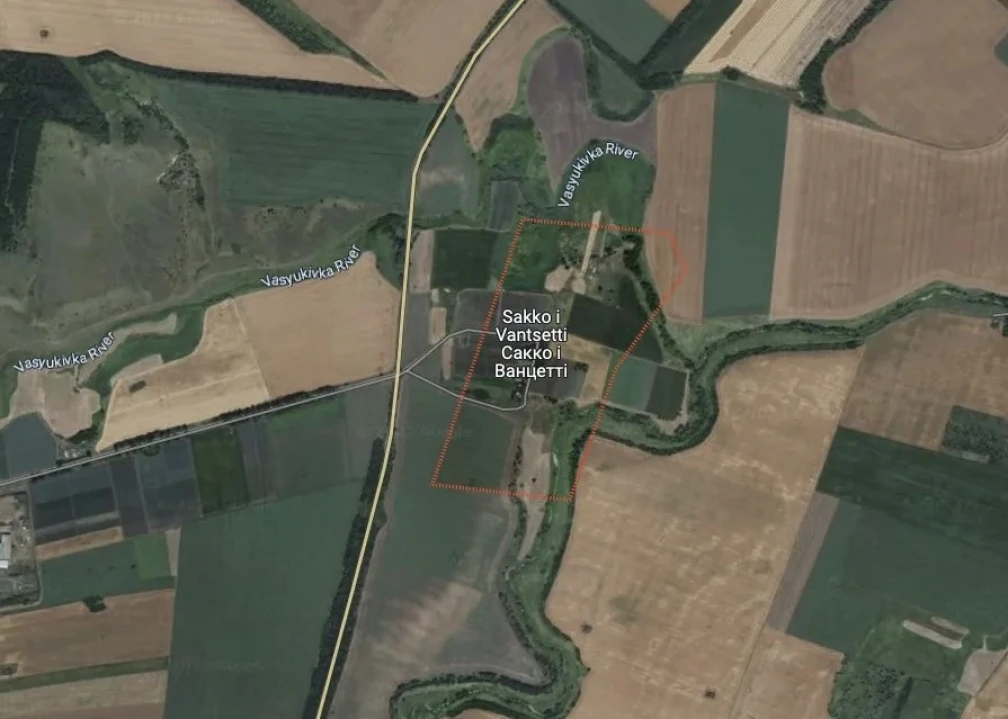Over the past month, the war has been particularly harsh in the eastern territory of Ukraine. Russian mercenaries from the Wagner Group have begun claiming on Telegram every little bit of conquered land, including abandoned and destroyed villages, including one that in Bakhmut province we discovered was called Sakko i Vantsetti in homage to the two Italian anarchists sentenced to death in the United States in 1927.
Despite countless changes of street and town names to remove any reference to the Soviet past in Ukraine, the name of Sakko i Vantsetti, an old kolchoz surrounded by sunflower fields and crushed by a clear blue sky, has miraculously remained unchanged.
The village lies in the heart of the Donbass, where people have been dying in the trenches for months and where the new Russian offensive began a few weeks ago. During the existence of the USSR, this location was so named in tribute to Nicola Sacco and Bartolomeo Vanzetti, immigrants to the United States who were arrested, tried and sentenced to death on charges of murdering an accountant and a guard at a shoe factory in Braintree, Massachusetts.
In those years there was a poisoned climate against Italians, to say the least: if they were not anarchists, then they were in the odor of the Mafia or fascism. Since their arrest in 1920, Sacco and Vanzetti-a shoe factory worker and a fishmonger-proclaimed themselves innocent, and many doubts arose about the evidence gathered by the prosecution, as well as the fairness of the trial. The court case had a great international echo, with several personalities from the world of entertainment and culture coming out in support of Nick and Bart. That was not enough, and the anarchists were killed by an electric chair.
Their name soon became a symbol of the struggle for social justice and against oppression. In the post-World War II period, having partly discounted the stigma of the Black Twenties, Italy also took courage and began to publicly claim Sacco and Vanzetti's innocence. In time, it was discovered that their alibi was shaky and that the bullet had indeed been fired from Sacco's gun, and yet the harshness with which they were treated, the impression that their radical beliefs had affected the court's judgment earned the two anarchists rehabilitation. On August 23, 1977, on the 50th anniversary of their execution, then Massachusetts governor and future presidential candidate, Michael Dukakis, proclaimed Nicola Sacco and Bartolomeo Vanzetti Memorial Day, stating that they had been unjustly tried and convicted and that "all dishonor should be forever removed from their names."
In the Soviet world, Sacco and Vanzetti soon became heroes and objects of instrumentalization: heroes, by the anarchist galaxy that was alive and well especially in southern Ukraine and opposed Bolshevik power in the 1920s. Instrumentalized, however, by the very power that made them symbols of the brutality of the capitalist world, capable of bending the exploited and sending them to the gallows by authoritarian methods.
Sacco and Vanzetti were exemplary victims of the so-called Red Scare of 1919-1920, when many in the United States feared immigrants from Europe newly engulfed by Bolshevism and dissidents, particularly those who embraced communist, socialist or anarchist ideology. The end of World War I, with a drastic drop in production and an exponential rise in unemployment, led Americans to embrace strong nationalist and anti-immigrant sympathies, while the revolution in Russia in 1917 led conservatives to fear that immigrants wanted to overthrow the U.S. government. Labor strikes, including the Boston police strike in September 1919, contributed to fears that radicals wanted to start a revolution.
Significantly, more places are named in reference to Sacco and Vanzetti in the post-Soviet world than in Italy: a brewery plant in Moscow, several roads in Ukraine and Russia, an apartment complex in Yekaterinburg. "Sacco and Vanzetti" was also a popular brand of Russian pencils in the 20th century. The anarchist duo served-in its martyrized version-to Moscow propaganda as a reminder of the injustices taking place beyond the Iron Curtain.
Subscribe to our Newsletter
By subscribing, you'll get the latest blog post and news by email.
SUBSCRIBE


